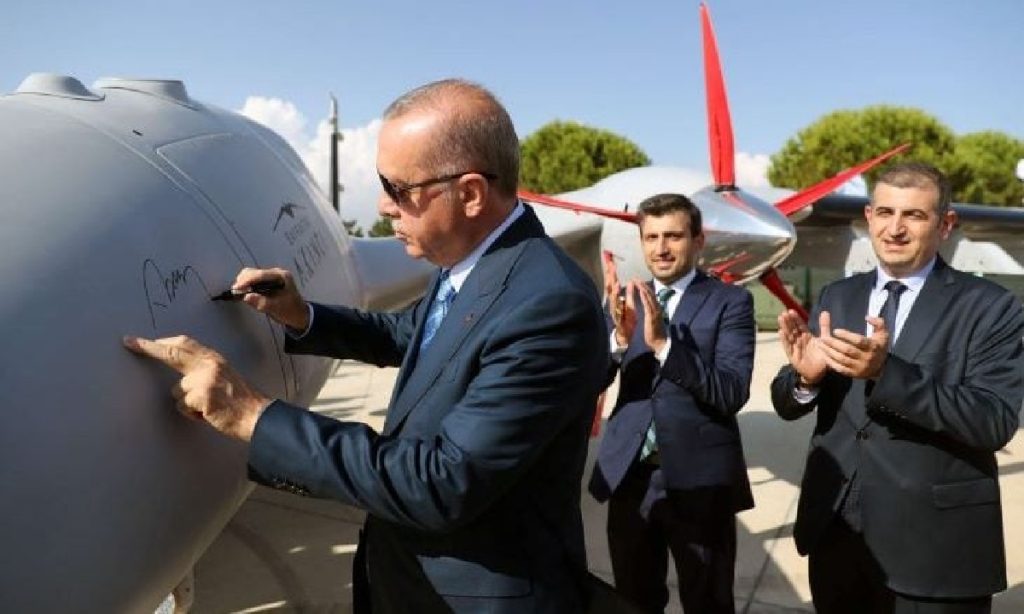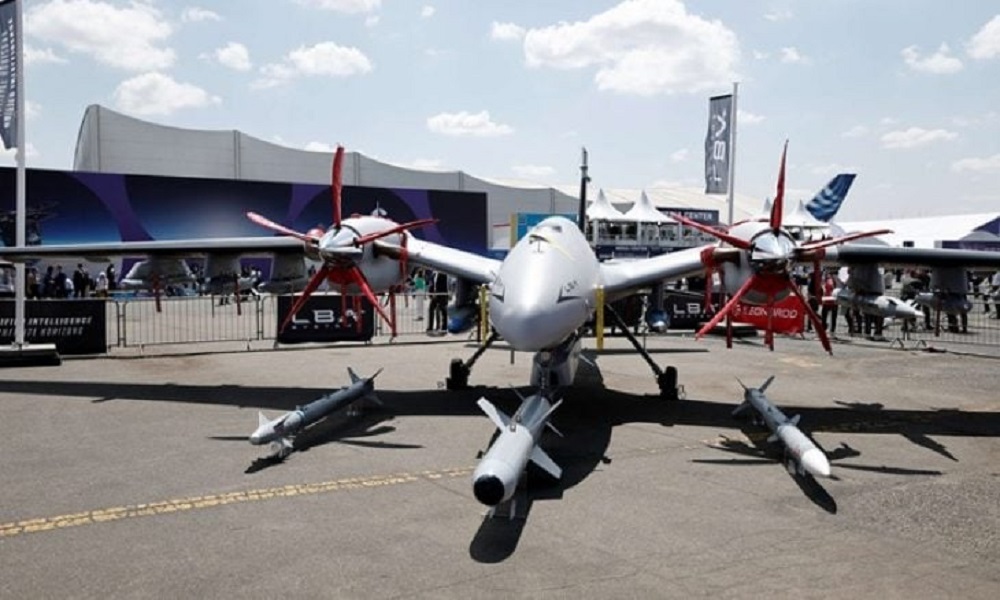Turkey Expands Military Footprint in Europe with Drone Production in Italy and Aircraft Carrier Project in Spain
Watan-Turkey is seeking to cooperate and produce military equipment at the heart of the European continent, focusing on two countries: Italy, where it will manufacture drones, and Spain, with which it will coordinate to build aircraft carriers to compete in the Mediterranean Sea against major naval powers such as France, the United States, and Russia.
The Turkish military-industrial company Baykar acquired its Italian counterpart Piaggio Aerospace at the end of last year. The initial approval of the deal required time and negotiations due to considerations of Italy’s national security and reservations from other countries like France.
In this regard, the military website “Galaxia Militaire” recently reported, following the final signing of the acquisition and official purchase just weeks ago, that the Turkish company intends to start producing the “Bayraktar TB2” drones as well as the “Akıncı,” which are among the most advanced drones in the world currently, alongside those from the United States, China, and Russia.
Among the benefits the Turkish company will gain is coordination with Leonardo Aerospace and Defense company to install radar systems on Turkish drones, which will make them more advanced and place them unquestionably among the world’s top drones.


Practically, this decision marks a turning point, as a southern country will begin manufacturing advanced weapons in a highly developed country in military industry, one of the seven major powers—Italy.
Many European countries wished to acquire Turkish drones, including Germany, but historical pride prevented them from doing so after the start of Turkish drone manufacturing in Europe. The European Union bets on Turkey being part of a European army, which was decided to be established after the U.S. President Donald Trump lowered the defense commitment to Europe.
Turkish drones became well known for their use by Ukrainian forces in confronting Russia in the ongoing war. The “Bayraktar TB2” is currently the best-selling drone worldwide.
In another military-industrial file, Turkey’s naval ambitions are taking a decisive turn with the confirmation by the Turkish Presidency of Defense Industries to move forward with a joint project with Spain to develop a 300-meter-long aircraft carrier, according to the Istanbul-based newspaper “Daily Sabah.”
The new aircraft carrier will be Turkey’s largest warship to date, surpassing the Turkish carrier “Anadolu,” which is approximately 232 meters long, and it will also exceed most European amphibious assault ships.
Among the benefits the Turkish company will gain is coordination with Leonardo Aerospace and Defense company to install radar systems on Turkish drones.


Turkey intends to build aircraft carriers alongside the Spanish company “Navantia,” with whom it cooperated on building the first ship, “Anadolu.” The latter was designed for the use of the F-35 stealth fighter, but Turkey’s purchase of the S-400 air defense systems led Washington to exclude it from the fighter program, and consequently, the Turkish Ministry of Defense decided to dedicate the “Anadolu” to helicopters and drones.
However, the upcoming aircraft carriers will be designed for all types of air weapons, including fighters, drones, and helicopters.
Strategically, this project represents a re-evaluation of Ankara’s maritime and geopolitical doctrine. In the Mediterranean Sea, where competition for naval influence is intensifying, this aircraft carrier will enhance Turkey’s deterrence power and operational flexibility, especially in disputed maritime areas. Its presence will also impact the balance of power in the Black Sea, where NATO, Russia, and other coastal countries continue their complex struggles.



